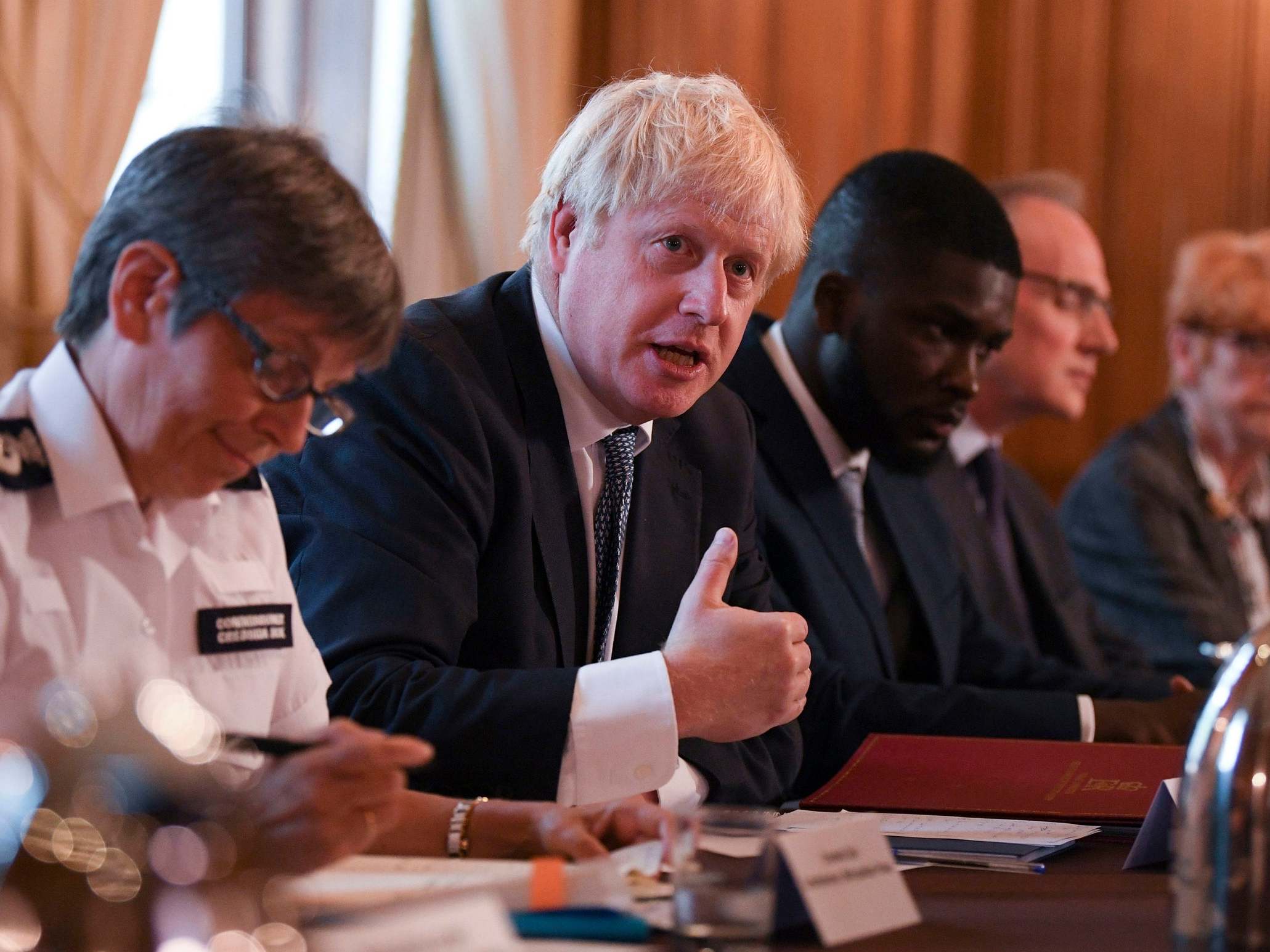Number of people punished for crimes hits record low as offences rise in England and Wales
Criminals ‘rubbing their hands with glee’ as chances of escaping without prosecution rise
The number of people prosecuted or handed penalties for crimes in England and Wales has fallen to a record low despite a rise in the number of offences.
Statistics released by the Ministry of Justice showed the figure dropped by 2 per cent to 1.59 million people in the year to March.
The number of people prosecuted, convicted and jailed all fell, even though crimes recorded by police rose by 8 per cent to 5.3 million in the same period.
Richard Atkins QC, chair of Bar Council, said: “Criminals up and down the country will be rubbing their hands with glee knowing that even if their crimes are detected and they are caught by the police, the chances of them being prosecuted or jailed are slim.
“These statistics make for grim reading, however, the state of the criminal justice system is far worse than the figures show.”
Mr Atkins said the statistics were “just the tip of the iceberg” of problems in the system, which he described as “broken”.
“Criminals are going about their business unchallenged: fraud goes virtually unpunished and is not even included in the statistics,” he added.
“The Bar Council, MPs, senior judges and others have been calling out for reversal of the draconian cuts to the justice budget – the steepest cuts to any public service.
“Our democracy, society and our economy depend on a properly functioning, fair justice system that the public can have faith in. Sadly we fear that this is no longer the case.”
The Law Society of England and Wales said the criminal justice system was “at breaking point” after years of underfunding.
“It simply doesn’t have the resources to function effectively,” said the vice president David Greene.
“Solicitors report delays from the police in preparing and taking statements, and the CPS in reviewing evidence and deciding upon the charge. Police forces are increasingly releasing suspects under investigation rather than on bail. This means there is no time limit to complete the investigation and bring the case to court.”
Boris Johnson has announced a review of sentencing laws that require most inmates to be released on parole halfway through their term.

The prime minister has also vowed to create 10,000 more prison places, recruit 20,000 new police officers and give £85m extra funding to the Crown Prosecution Service (CPS).
The number of first-time offenders fell in the year to March, and the largest group of people being dealt with – 37 per cent – had 15 or more previous cautions and convictions.
In the same period, separate statistics showed that the number of crimes solved plummeted by 40,000.
Only 7.8 per cent of crimes saw a suspect charged or summonsed in 2018-19, compared to 9.1 per cent the year before.
For rape, the figure was just 1.5 per cent – down from 3 per cent in 2017-18 – and the figure was only 8 per cent for violence, 7 per cent for robbery, 6 per cent for theft and 3.5 per cent for sexual offences.
Metropolitan Police commissioner Cressida Dick has admitted that the detection rates for some offences were “woefully low”.
“The courts are emptying, not filling,“ she said in June. “It’s not good and I’m not proud of it.”
Ms Dick, who is Britain’s most senior police officer, suggested that an explosion on digital data stored in mobile phones was partly to blame for the fall in solved cases.
In the year to March, police closed 44 per cent of cases without identifying a suspect, 23 per cent were marked “evidential difficulties – victim does not support action” and another 10 per cent of cases were stopped by other issues with evidence.
The CPS said police had been referring fewer cases for charging decisions.
“Our work is demand led; we do not investigate crime, or choose which cases to consider,” a spokesperson added.
“CPS prosecutors review every case referred to us by the police or other law enforcement agencies. If our test to bring a prosecution is met we will not hesitate to prosecute.”
The National Police Chiefs’ Council said funding cuts had damaged officers’ ability to investigate crimes.
“Too few crimes are being solved and brought to court for justice to be done,” chief constable Andy Cooke admitted.
“This is a symptom of the strain on policing as we try to manage growing crime and demand that is ever more complex.”
The Ministry of Justice highlighted statistics showing that prison sentences are now the longest in a decade, rising to an average of 17.2 months.
A spokesperson said: “We are doing more to restore public confidence in the justice system - investing in police and prison places, and reviewing sentencing to make sure violent and sexual offenders are properly punished.”

